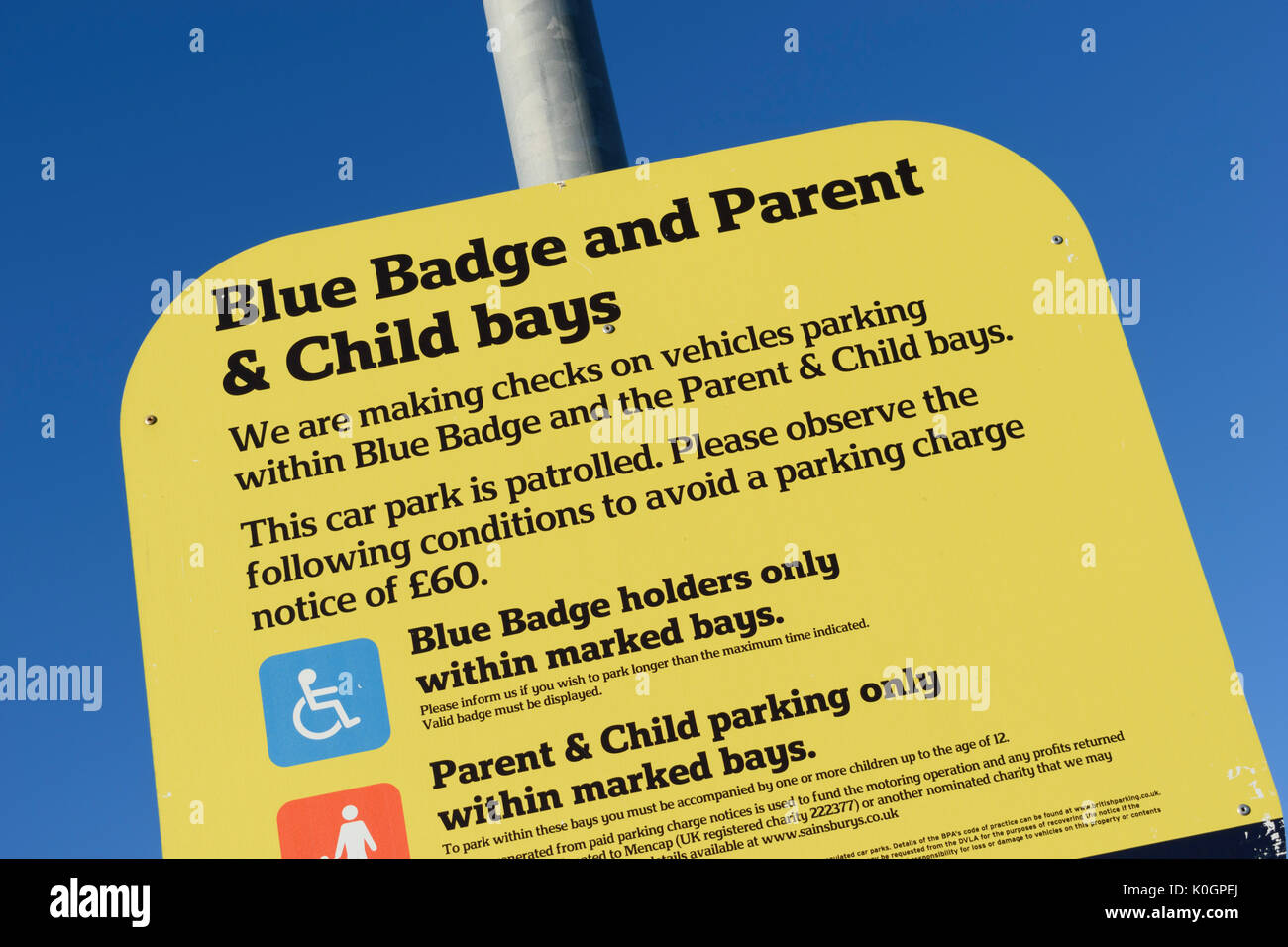Parking can be a significant challenge for individuals with disabilities, and the Blue Badge scheme provides essential parking benefits to make mobility easier.
One question that often arises is whether Blue Badge holders can park in parent and child spaces. Understanding the rules and guidelines regarding this issue is crucial for avoiding penalties and ensuring proper parking practices.
Understanding Parent and Child Spaces
Parent and child parking spaces are typically found in supermarket car parks and other public places. These spaces are designed to provide extra room for parents to safely load and unload young children from their vehicles. The extra space allows for the use of car seats, strollers, and other child-related equipment.
While it is not illegal to park in a parent and child bay without a child under 12, doing so may result in a Parking Charge Notice (PCN). These spaces are intended to be used by parents with young children to ensure their safety and convenience.
Rules for Blue Badge Holders
Blue Badge holders have designated parking spaces specifically allocated to accommodate their needs. These spaces are typically wider and located closer to building entrances to facilitate easier access. It is generally recommended that Blue Badge holders use these designated bays rather than parent and child spaces.
While it might not be illegal for Blue Badge holders to park in parent and child spaces, it is not considered best practice. Blue Badge holders should use the spaces reserved for them to ensure that parents with young children can use the spaces designed for their needs.
Potential Consequences
If a Blue Badge holder parks in a parent and child space without having a child under 12 with them, they could receive a Parking Charge Notice (PCN). These notices are typically issued by private parking companies and can result in fines. Additionally, using these spaces can inconvenience parents who genuinely need the extra space for their children.
Benefits of Using Dedicated Blue Badge Spaces
- Accessibility: Blue Badge spaces are strategically located closer to building entrances, providing easier access for individuals with disabilities.
- Extra Space: These spaces are wider, accommodating mobility aids such as wheelchairs and scooters.
- Legal Protection: Using designated Blue Badge spaces ensures compliance with parking regulations, reducing the risk of fines and penalties.
For more detailed information on the Blue Badge application process, renewal, and recent changes in regulations, visit the following articles on our website:
Common Questions and Misconceptions
1. Can Blue Badge holders park in parent and child spaces without a child?
While it is not illegal, it is not recommended. Blue Badge holders should use designated Blue Badge spaces to avoid potential fines and to leave parent and child spaces available for those who need them.
2. Are there penalties for Blue Badge holders parking in parent and child spaces?
Yes, parking in these spaces without a child under 12 can result in a Parking Charge Notice (PCN) issued by private parking companies.
3. Why should Blue Badge holders use designated Blue Badge spaces?
Using designated Blue Badge spaces ensures better accessibility, more space for mobility aids, and compliance with legal parking regulations.
While Blue Badge holders might consider parking in parent and child spaces due to their convenient location and extra space, it is best practice to use the designated Blue Badge spaces. These spaces are specifically designed to meet the needs of individuals with disabilities, ensuring they have the accessibility and space required for their mobility aids. By adhering to these guidelines, Blue Badge holders can avoid potential fines and ensure that parent and child spaces are available for those who genuinely need them.
For more detailed guidance on the Blue Badge scheme, including how to apply for and renew a Blue Badge, visit our additional resources linked above. Staying informed and compliant with parking regulations will help you fully utilize the benefits of the Blue Badge scheme, making everyday activities more accessible and less stressful.

